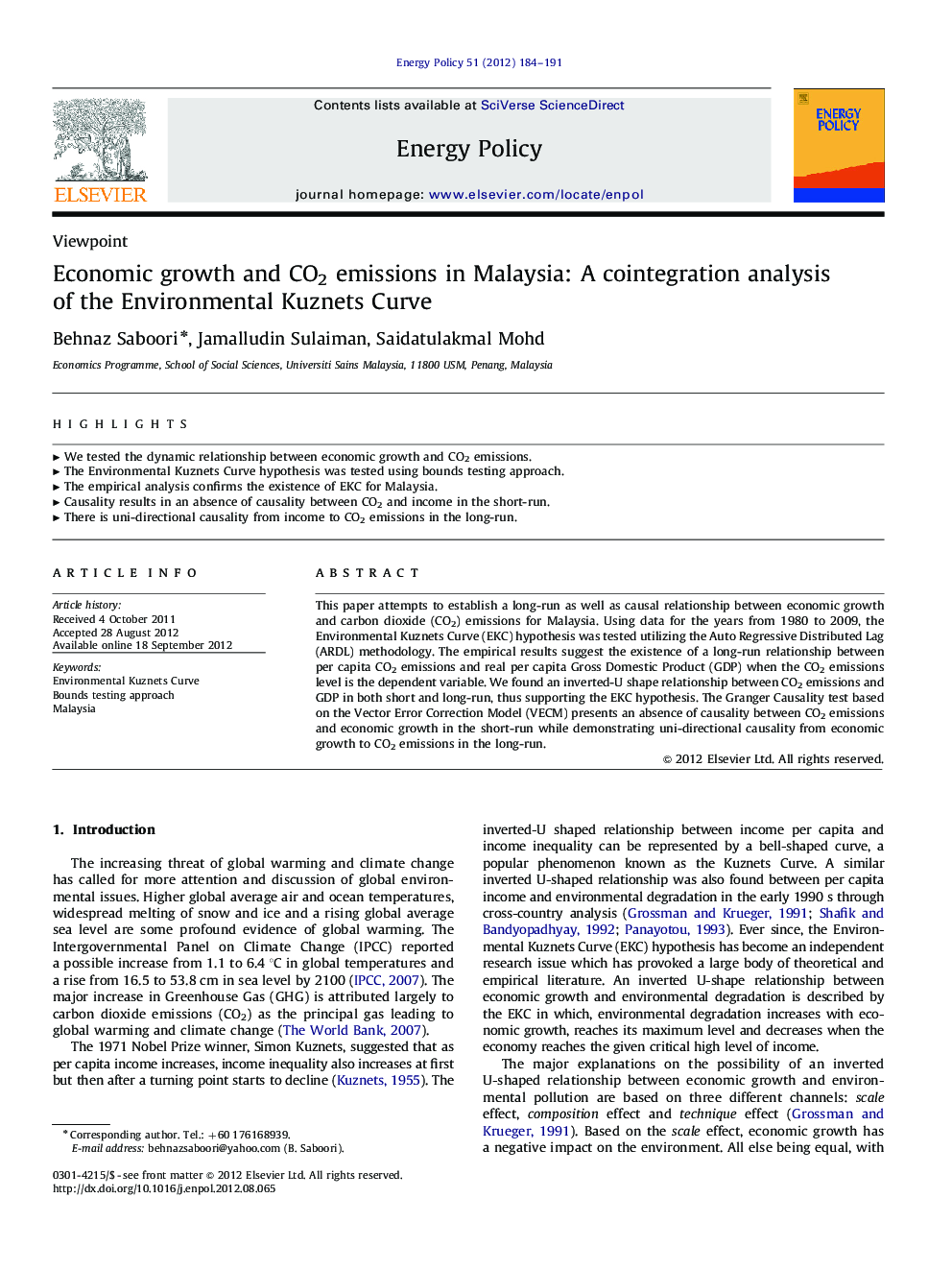| Article ID | Journal | Published Year | Pages | File Type |
|---|---|---|---|---|
| 995593 | Energy Policy | 2012 | 8 Pages |
This paper attempts to establish a long-run as well as causal relationship between economic growth and carbon dioxide (CO2) emissions for Malaysia. Using data for the years from 1980 to 2009, the Environmental Kuznets Curve (EKC) hypothesis was tested utilizing the Auto Regressive Distributed Lag (ARDL) methodology. The empirical results suggest the existence of a long-run relationship between per capita CO2 emissions and real per capita Gross Domestic Product (GDP) when the CO2 emissions level is the dependent variable. We found an inverted-U shape relationship between CO2 emissions and GDP in both short and long-run, thus supporting the EKC hypothesis. The Granger Causality test based on the Vector Error Correction Model (VECM) presents an absence of causality between CO2 emissions and economic growth in the short-run while demonstrating uni-directional causality from economic growth to CO2 emissions in the long-run.
► We tested the dynamic relationship between economic growth and CO2 emissions. ► The Environmental Kuznets Curve hypothesis was tested using bounds testing approach. ► The empirical analysis confirms the existence of EKC for Malaysia. ► Causality results in an absence of causality between CO2 and income in the short-run. ► There is uni-directional causality from income to CO2 emissions in the long-run.
